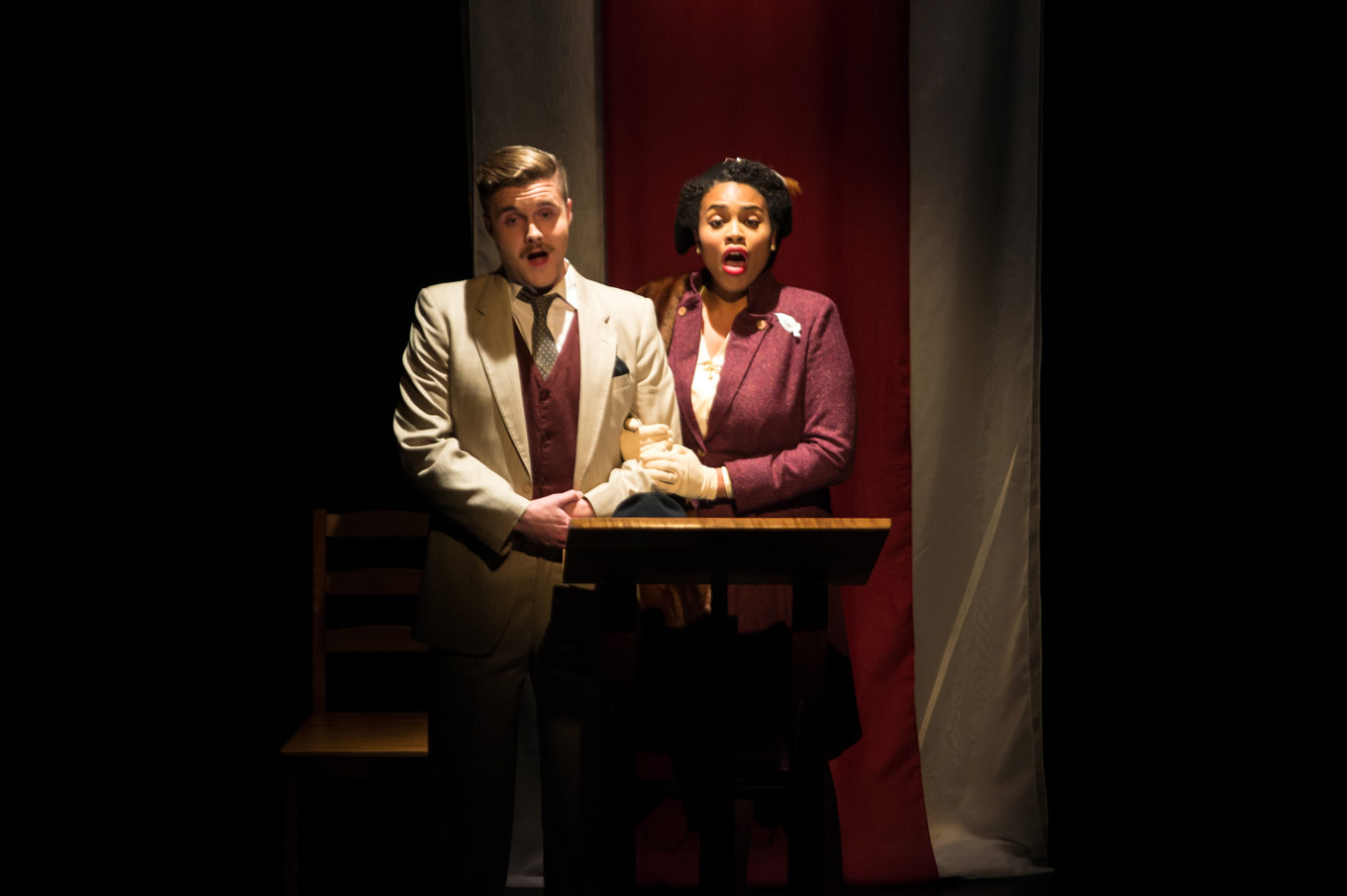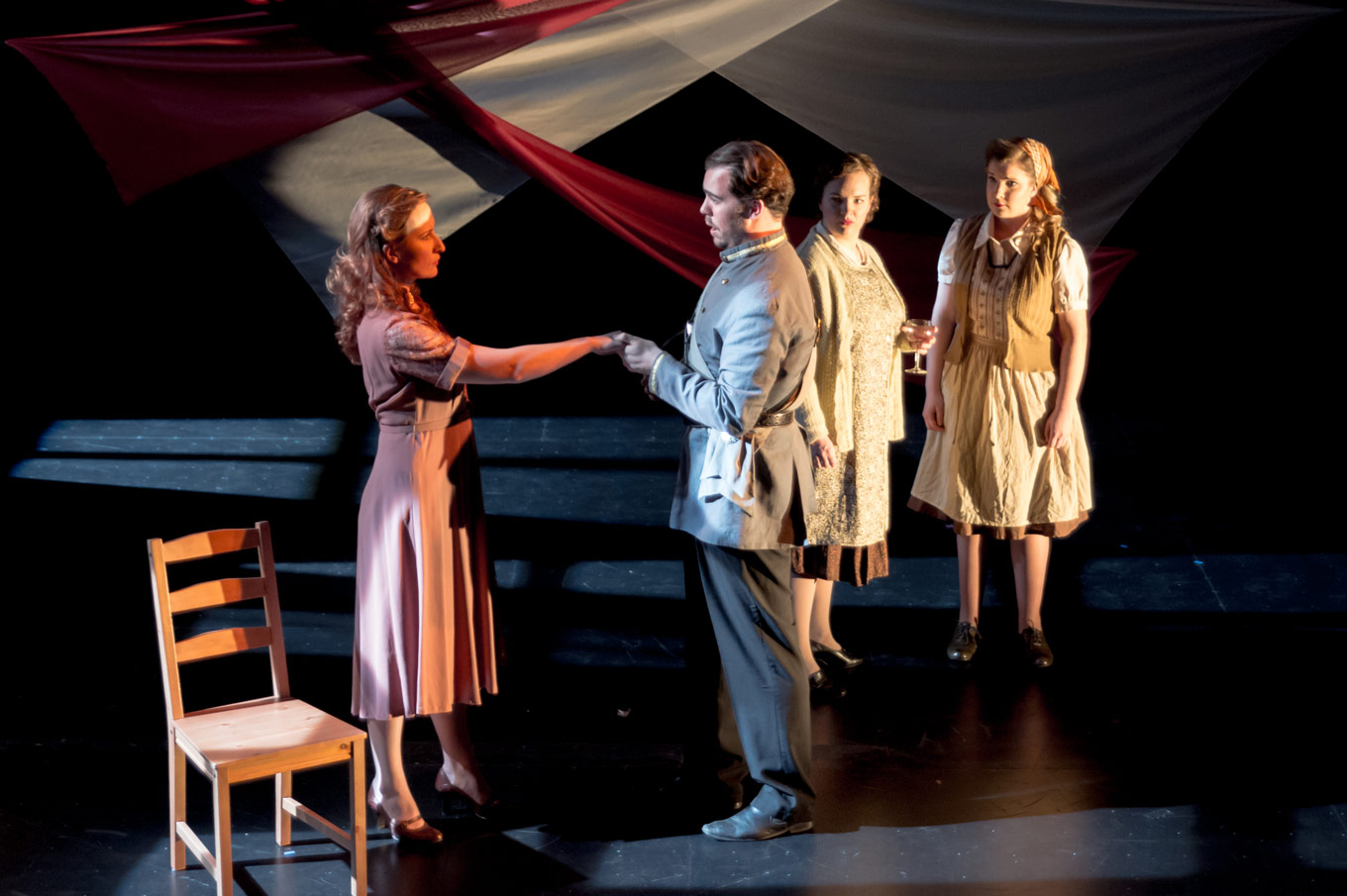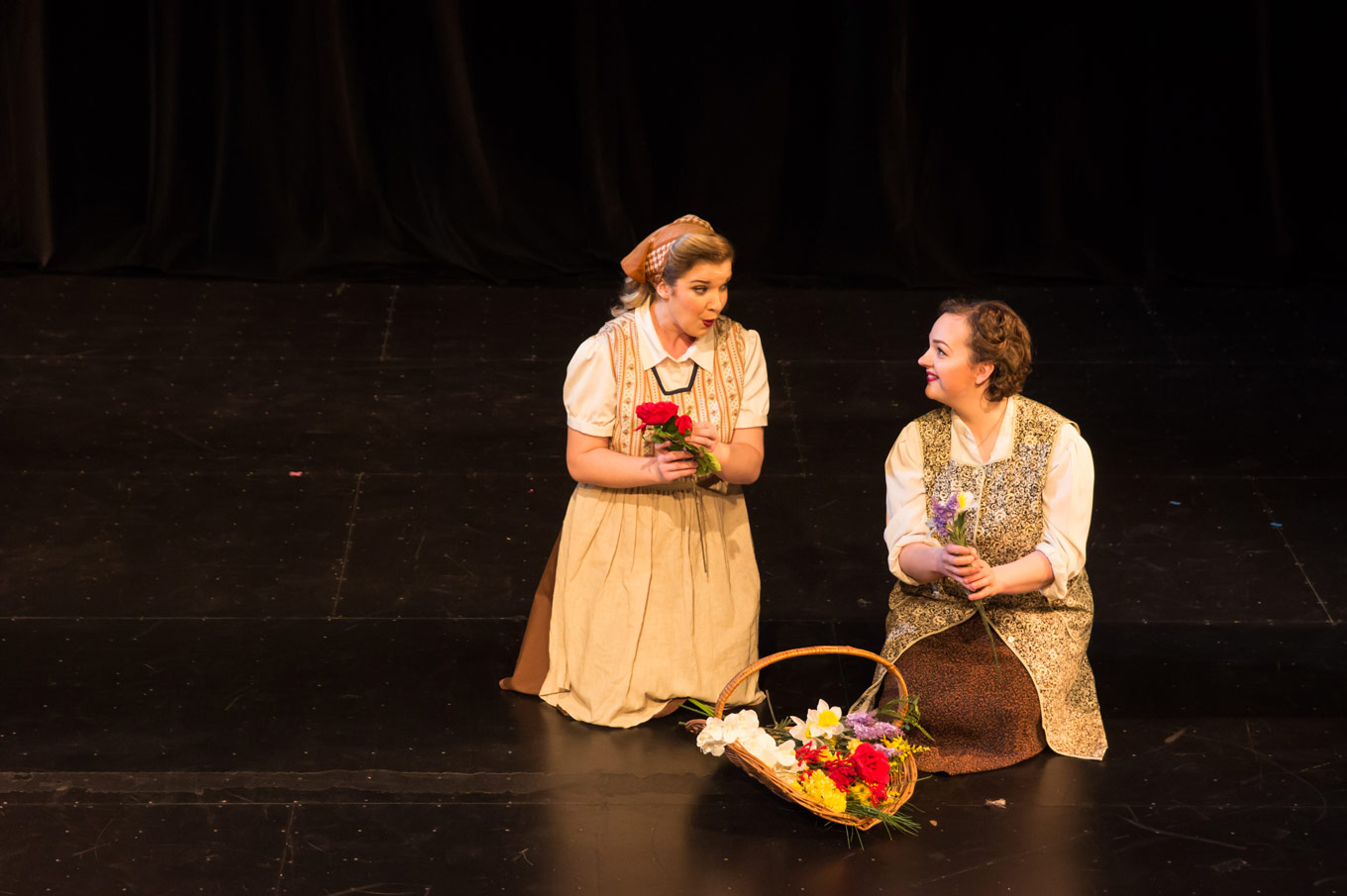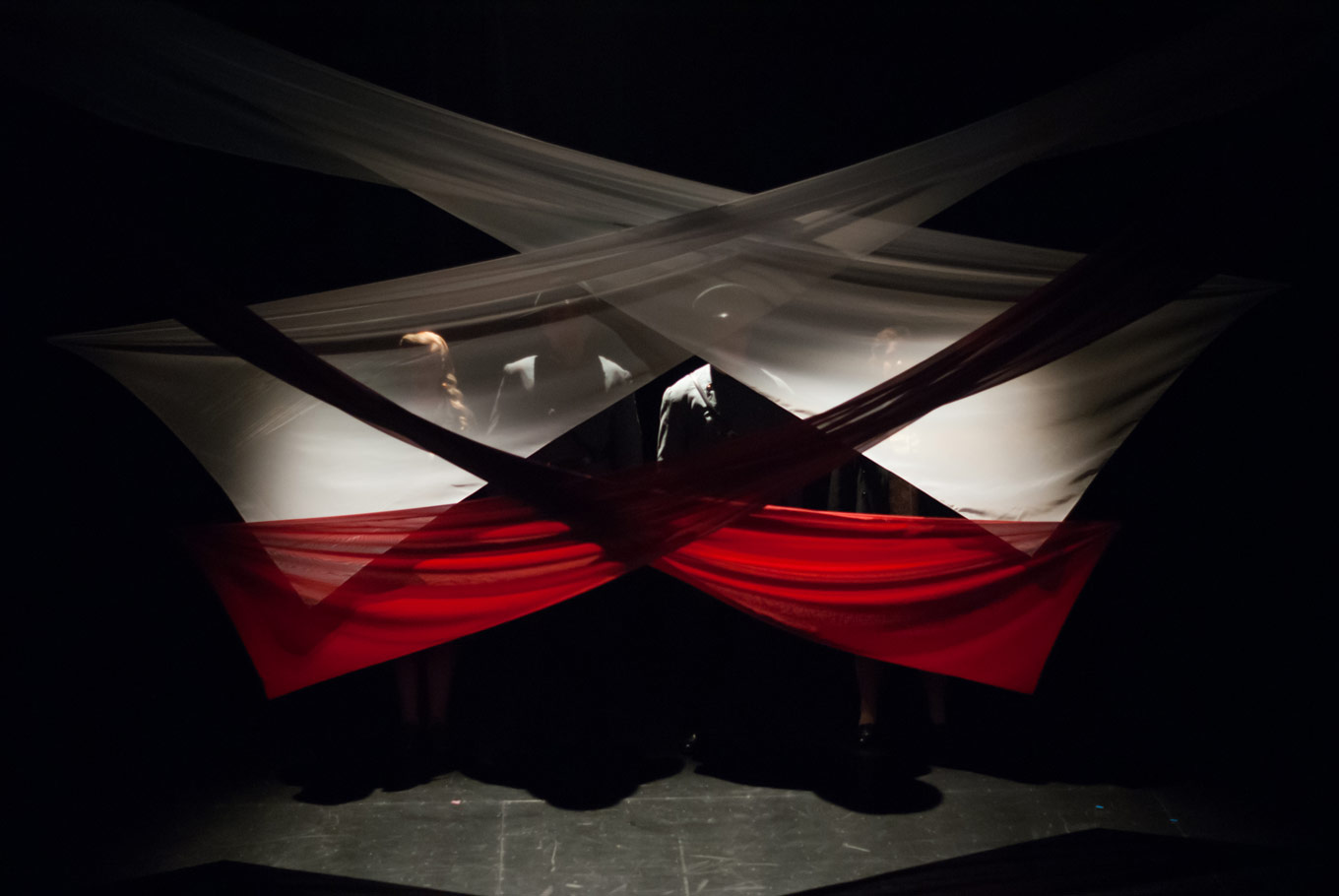
In review: The Rape of Lucretia
ReviewFor my first show experience at Daniels Spectrum, I have to say I’m glad it was the one I saw tonight.
I was part of another sold-out crowd for MyOpera’s production of Benjamin Britten’s The Rape of Lucretia. There was a nervous energy in the theatre. The audience was hushed but incredibly animated. There was something in the air.
What’s interesting about this production is its produced by an entirely female artistic team, and after seeing this, I’m even more convinced of how important it is to have organizations of this kind are to the continued success and vitality of this industry. They brought us a clean, intimate, tasteful presentation of an incredibly sensitive and incendiary subject.
Director Anna Theodosakis set this Roman tragedy in mid-20th century wartime Rome. The intimacy of the space and the juxtaposition of the era’s sense of prudence and propriety thrust the audience almost directly into the action. It was incredibly close and intimate and I think it added to the stressful undercurrent of the entire score. The male and female chorus guide us through the horrific unfolding of events, there is a clear point of view from a feminine perspective, but one that was nobly sympathetic to the weakness of the men who are the catalyst to all this indignity.

As the Male Chorus, tenor Daevyd Pepper sang with a clear, light, and agile tone that suits Britten to a tee. As the Female Chorus soprano Jonelle Sills shines. She handles the huge vocal range expertly and takes us on a beautiful dramatic arc throughout the show. The two had the often overlooked and thankless job of being the narrators, however their presence throughout the duration of the show helped with the portrayal of them as the conscience of the characters onstage.
Baritone Nicholas Borg sang a Tarquinius that wasn’t entirely unlikeable, and you’re actually kind of on his side for a bit at the start. His development in the first act from jovial ribalding with his fellow soldiers to full-on, blinded-by-jealousy-and-lust was pretty abrupt. For the actor in me, I’d like to see a bit more danger in him from the get-go or have his urges take him over in a more measured manner. I know it’s a tough order “Hey can you lose it completely, but in a very controlled and measured way?” Ah, theatre. Always alive with paradox. Borg’s tone was a little broad and it felt like he’s still finding his “ping”, but I thought the colour of his voice worked very well both against the other two military men and with Lucretia herself.
Mezzo-soprano Christina Campsall stuns us (once again) as Lucretia. With a maturity and sensitivity we saw, through a very exposed lens, the destruction of a woman whose only crime was not cheating on her husband. Her morning-after aria still has me in chills. Her portrayal of Lucretia’s breakdown in the second act was tasteful and complete. We saw a woman who didn’t fall from grace, but was pushed from it. Campsall’s colourful voice and mastery of a wide register made her Lucretia a shining musical point in this production.

Junius and Collatinus were sung by two young baritones with much promise. Evan Korbut as Junius sang with a smooth, easy production that hints at some major development in the direction of bel canto. As Collatinus, Jacob Feldman also sang very well. As with Borg, I felt moments where the sound was a little spread and wide, but speaking as someone who was a young baritone once, that’s a struggle that will be overcome with time - and with some fine tuning attention to the wide variety of English “eh” vowels.
The two handmaidens Lucia and Bianca were sung beautfully by Anne-Marie MacIntosh and Victoria Marshall respectively. MacIntosh’s bell-like soprano was a breath of fresh air in this heavy, dark subject matter. She twinkled as the naïve young woman, unabashedly excited at the arrival of Prince Tarquinius. As Bianca, Marshall’s darker, fuller tone spoke to the character’s years. Her characterization of Bianca was top-notch as well. Though they reference her age in the libretto quite readily, she portrayed her a little closer to Lucretia’s age.

One of my favourite points is when she has a moment saying that sometimes the servant knows better than her mistress - and you see that only she can sense the danger that’s coming from the surprise arrival of the prince so late at night. She’s a worldly, knowing, and womanly force to be reckoned with in the Lucretia household. It’s also one of the most poignant moments when you see her understand what’s happened the morning after without having to be told. It was as if she’d experienced this sort of thing before.
At the piano, Natasha Fransblow - whom I’ve had the immense pleaure of working with myself - played a beautifully executed and articulated score that was full of unique sounds, colours and phrasing. Her sensitivity to working with singers was flawless. I highly recommend you see anything she plays.
In one of the classiest moves I’ve seen in an opera company here in Toronto, MyOpera understood that this subject matter may be very difficult for some people to watch and experience, and in doing so had counsellors available in the lobby should any of the audience need someone to talk to. #WellPlayed.



Comments